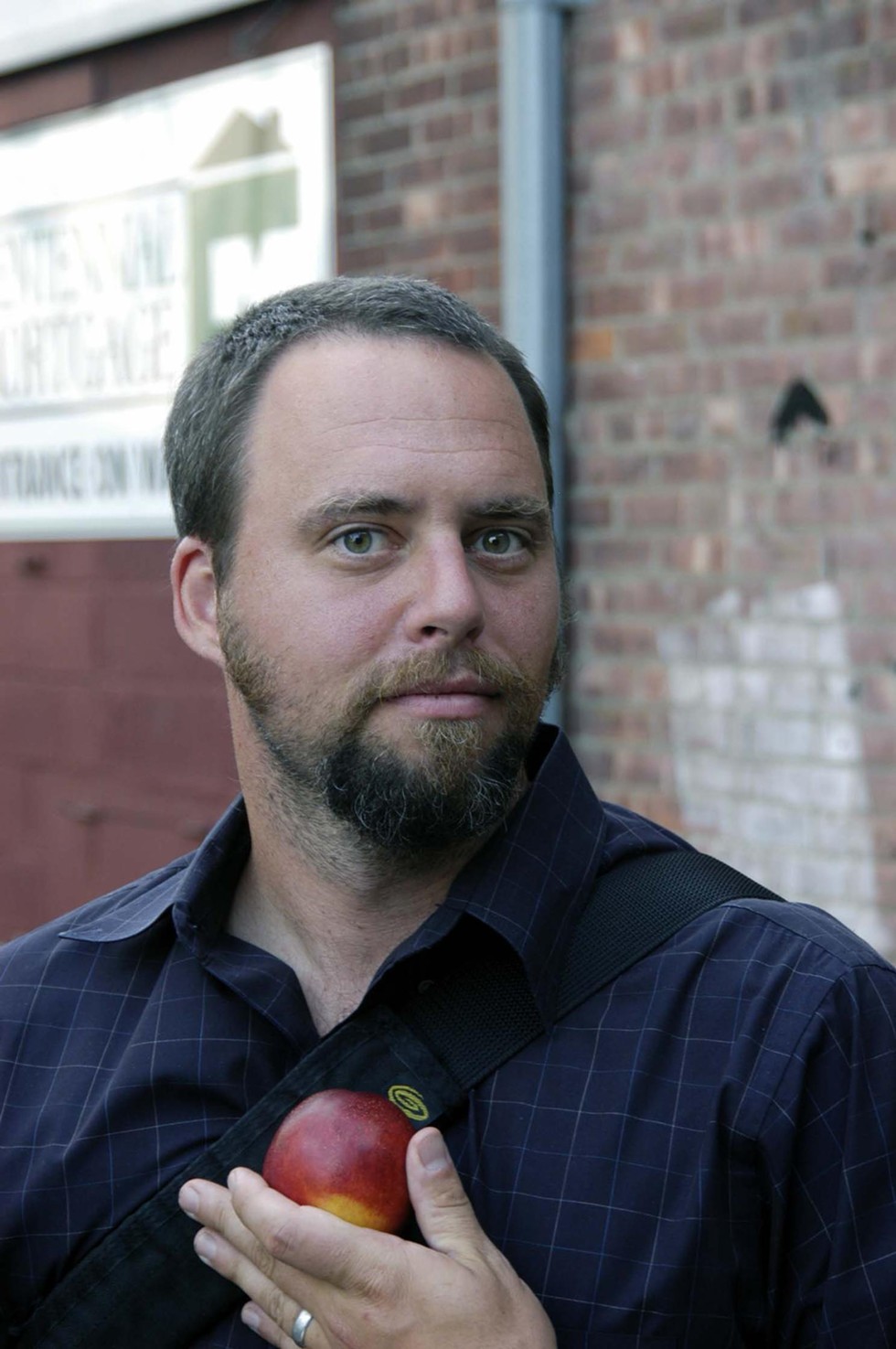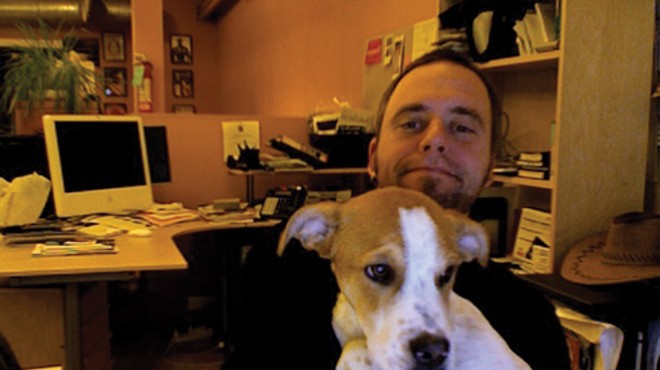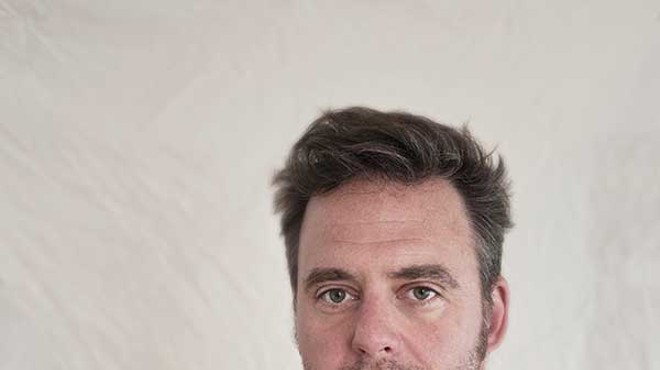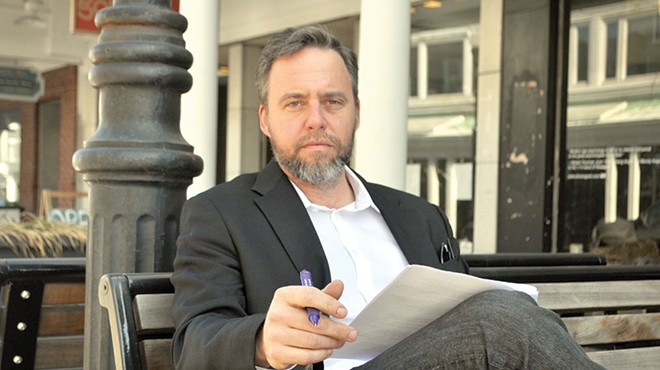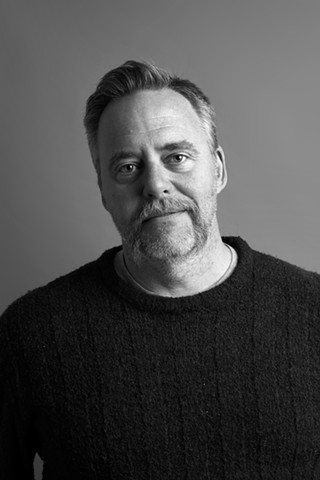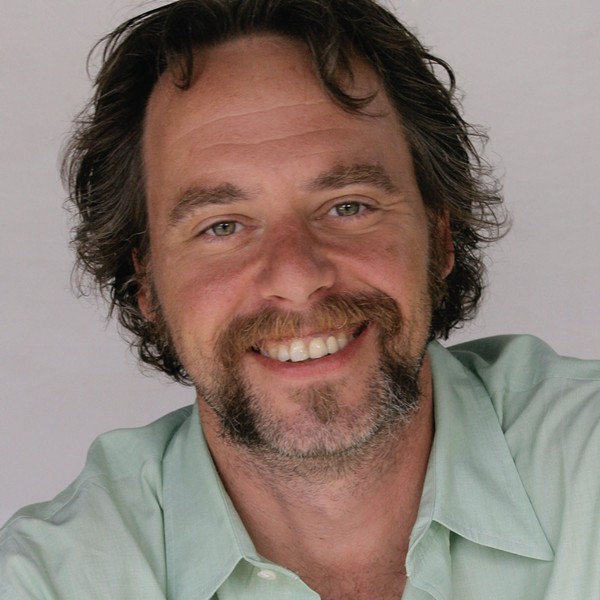I spent the first two weeks of October in the Chronogram archive, leafing through back issues (351!) and picking out choice bits for our 30th Anniversary Supplement (page 61). Along the way, I got to read all my old columns again. Some were great, some were less than great, some I did not remember at all. What follows are six excerpts from the vault, from my first Editor's Note in 2004 to a letter I wrote to my newborn niece Adeline in 2016. They represent both a personal timeline and a barometer of the changing conditions in the region in recent decades, from early editorial exuberance to would-be Brooklyn expats and the NIMBY opposition.
I continue to be grateful to be afforded the opportunity to try and make sense of it all each month.
"Hard Pass on the Verbal Pyrotechnics," May 2004
The Editor's Note should set the tone for what is to follow, whether contemplative, skeptical, matter-of-fact, blissed-out, pissed-off, celebratory, valedictory, what have you. The Editor's Note, while reflecting the sensibility of its author (who, by extension, is a kind of author-writ-large of the entire magazine), should not overpower the rest of the writing in grandstanding displays of pinwheeling verbal pyrotechnics whose seemingly sole purpose to edify all and sundry that the editor, having stayed awake in vocabulary class from second through 12th grade (while many compatriots somnambulated), pored over word lists late into the night as a teenager (with occasional expeditions into the dense word forests of Gaddis, Joyce, and Pynchon) and pegged a 780 on the verbal portion of the SATs, is, despite his nagging insecurities, in fact brilliant and capable of shouldering these duties.
"Gone to the Dogs," March 2010
Lee Anne and I adopted our dog, Shazam, 18 months ago. And while I'm ashamed to admit it, we have become the type of pet owners I always found exasperating until now. You know the type. People who leave the party early because they have to get home to their dog. People who talk incessantly about their pets like they were exceptionally bright children. People who accept compliments on behalf of their pets' good looks, as if they shared DNA. People who worry if their dog is getting along with the house sitter while they're on vacation.A recent conversation: Me: Hey, House Sitter, how's it going? House Sitter: Great! How's the beach? Me: Good, good. Sandy. Uh...How's Shazam doing? House Sitter: Do you want me to put him on? Me: If you wouldn't mind.
Related
"Sushi in the Country," June 2011
My friends Dave and Corinne are contemplating moving upstate from Brooklyn. We all know the story if we haven't lived it ourselves: They're in their mid-40s and the go-go life in Gotham has lost its luster. Once that happens, what's left is a layer of grime on every metal-plated subway fixture. Corinne has the possibility to work out of an office in Albany; Dave's thinking about returning to his first career—he's a CIA grad—and opening a bistro. They've made a couple of tentative weekend explorations of Rhinebeck and Hudson to look at apartments. They're excited about renting a space twice as big as their Park Slope apartment for half the price.
But they're unsure. It's a big move, after all. And Dave and Corinne seem to know that once you move up here full-time, you don't actually go back to New York very often. Your life is here now. All your friends want to get out of the city anyway, especially in the summer. In a way, your life follows you.
Then Dave asks the all-important question: "Can we get sushi in the country?"
"Marching Season," March 2013
Infrequently, you sleep in and don't have time to walk the dog. You let him out the back door and watch him mope around the tiny yard and sniff the tennis ball that's been frozen into the pitted crust of snow for the last six weeks. He doesn't even try to dig the ball out, just stands and flares his nostrils. For some reason, the not-going-to-the-park dog in the yard is incredibly sad to you in a way that you can't explain and that is completely out of proportion to what's actually happening. But it's still your fault and you feel as if you've reduced—albeit by a tiny fraction—the sum total of all things possible in the universe. The guilt and the regret of it are enough to give you a little shiver. You think of something you read recently by Janet Steen: "Will I have too many regrets, not enough, or just the right amount? Will I even have the right regrets?"
Related
"The C Word," April 2015
Community is a notional thing. We all live in a physical place in the Hudson Valley—Cold Spring, Catskill, New Paltz, Poughkeepsie, etc. What defines a community, though, is not its geography but its interdependence. A community, unlike a neighborhood, doesn't have to exist; it is created through intention and mutual interest. We all live in a neighborhood, we don't all live in a community, though I would say that if you are reading this, you are part of at least one community, that of readers of this magazine.The stories we're attracted to telling are ones that highlight our interdependence, that invisible bond that connects us to each other and all things around us—stories of community.
Community is about dialog, finding shared areas of interest, and investigating shared outcomes that benefit all. This is important to keep in mind as the Hudson Valley is seeing an ongoing influx of new residents, many from New York City or other urban centers. One of the hallmarks of gentrification is a lack of sensitivity to existing social relationships. As the region continues to absorb new residents, we'd all do well to remember that communities are built through dialog, not by those who would dictate the terms of their participation, either by NIMBY-style opposition or a lack of sensitivity to existing residents.
Related
"Letter to Adeline," October 2016
The bright and shiny side of your privilege is that you have the opportunity to chase your wildest dreams. Do that. While you're doing that, I suggest always choosing the more difficult path. The hard stuff, whether it's calculus or marathon running, is the most rewarding, and builds something known as character. And don't worry about outcomes so much—the juice is in the doing. This is sometimes boiled down to the aphorism "life is a journey, not a destination." Which is true (as all clichés are true), but doesn't quite capture why you should work so hard: It will help you explain you to yourself and help establish a self you are comfortable with, for we are what we do. In an essay on Kafka (more on him when you're a bit older), David Foster Wallace suggests that the central joke in Kafka's work is that "the horrific struggle to establish a human self results in a self whose humanity is inseparable from that horrific struggle. That our endless and impossible journey toward home is in fact our home." Life is hard any way you slice it. So do the hard stuff, and do it well, and enjoy the struggle, because you can't avoid it. Pain is inevitable, suffering is optional.






